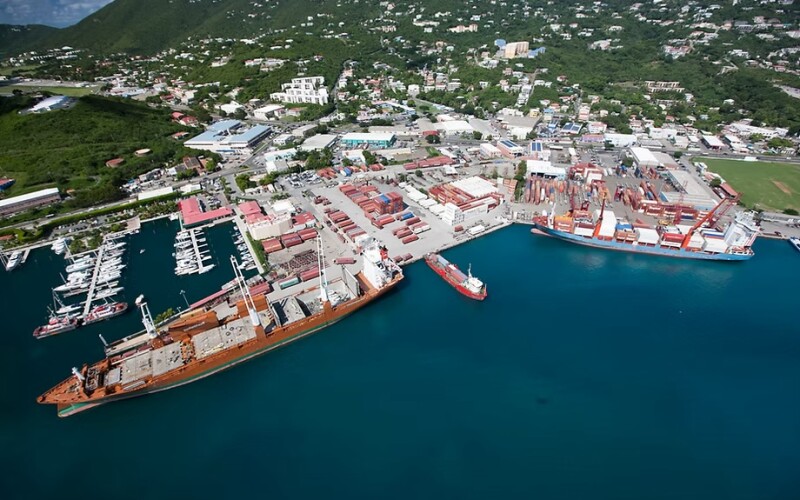The Trump administration’s moves to revitalize U.S. maritime industry has renewed interest in a 2021 proposal to create a new U.S. Virgin Islands ship registry that advocates say will bolster American competitiveness in. the global cargo trade.
A Virgin Islands registry was at the top of its recommendations, calling to “immediately establish an open international U.S. flag in the U.S. Virgin Islands (USVI) to provide responsible and transparent oversight to a commercial fleet of foreign and domestically owned and operated vessels.”
The report accompanied a memorandum of agreement between the institute and USVI officials. The document authors acknowledged the sensitivity of changing U.S. maritime practices, while making the case for bold action.
“The U.S. Virgin Islands are an organized, unincorporated sovereign U.S. territory exempt from the Jones Act. USVI is the most strategic location in the United States from which to stage a core aspect of this plan,” the plan introduction reads. “Basing a new maritime registry and related initiatives in the USVI allows the United States to maintain the regulatory framework of the Jones Act, a 'Separate, Yet One,’ policy, and at the same time increase U.S. international competitiveness and influence in the global maritime community.”
Among its recommendations, the proposal seeks:
Construction of a secure, high-throughput, and technologically advanced
Establishing a National Maritime Sustainability Strategy including Green Maritime Highways and a Green Shipping Certification Program for USVI-Flagged Vessels, with requirements and benchmarks for environmentally sustainable construction, operation, management, and planning.
The report notes that foreign shipping companies control 83% of world trade. While the U.S. has traditionally supported open international flag state regimes, “they have since grown too large for true compliance oversight and lack the desire to provide genuine global law enforcement services,” the authors say.
“Many open international flag states have knowingly or unknowingly enabled much of the illicit and unsustainable practices seen on the high seas today. In some cases, flag states have turned a blind eye to further restrict the disruption of these practices, running contrary to the U.S.’s strategic interests. The long-term results are plainly visible in the supply-chain dysfunctionality that has occurred over the last year and other unruly behaviors by state actors that run contrary to a transparent and rules-based international order on the high seas.”
“The creation of an autonomous international flag based in the USVI would allow the U.S. to take a leading role in quality and sustainable management practices and set new standards in maritime operational excellence. A new secondary U.S. Flag dedicated to international trade and commerce would provide a significant increase to U.S. tonnage; increase U.S. maritime labor capacity; uphold higher international standards for the safety of seafarers; allow for greater oversight of global trade and commerce; facilitate green seas initiatives, and incentivize U.S. financing, investment, and ownership in domestic maritime initiatives.”




